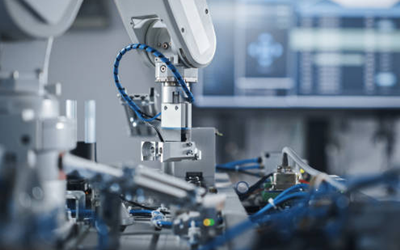Course description
Here's a detailed outline for a Mechanical Engineering
course focusing on the design, development, and manufacturing of mechanical
systems and devices, with applications in automotive, aerospace, robotics, manufacturing,
energy, and HVAC systems:
Course Title: Advanced Mechanical Engineering: Design,
Development, and Manufacturing
Module 1: Introduction to Mechanical Engineering
- Overview
of Mechanical Engineering
- History
and evolution
- Core
principles and branches
- Role
of Mechanical Engineers in Industry
- Key
industries: automotive, aerospace, energy, and manufacturing
- Emerging
fields: robotics and AI in mechanical engineering
- Fundamentals
of Mechanical Systems
- Basic
concepts: force, torque, energy, and power
- Mechanical
system components: gears, pulleys, levers, and actuators
Module 2: Engineering Mechanics and Dynamics
- Statics
and Strength of Materials
- Analysis
of forces and moments in structures
- Stress-strain
relationships and material properties
- Beams,
columns, and trusses
- Dynamics
of Mechanical Systems
- Kinematics
and kinetics of particles and rigid bodies
- Newton's
laws, energy methods, and momentum principles
- Vibrations
and Control Systems
- Free
and forced vibrations
- Damping,
resonance, and natural frequencies
- Introduction
to control systems in mechanical design
Module 3: Thermodynamics and Heat Transfer
- Fundamentals
of Thermodynamics
- Laws
of thermodynamics and their applications
- Properties
of pure substances and thermodynamic cycles
- Energy
analysis of closed and open systems
- Heat
Transfer Mechanisms
- Conduction,
convection, and radiation
- Heat
exchangers and thermal insulation
- Applications
in energy systems, HVAC, and cooling technologies
- Thermodynamic
Cycles in Mechanical Systems
- Internal
combustion engines (Otto and Diesel cycles)
- Refrigeration
and heat pump cycles
- Power
generation cycles (Rankine and Brayton cycles)
Module 4: Materials Science and Engineering
- Introduction
to Materials in Engineering
- Metals,
polymers, ceramics, and composites
- Mechanical
properties: hardness, toughness, fatigue, and creep
- Material
Selection for Mechanical Design
- Criteria
for selecting materials in different applications
- Case
studies in automotive, aerospace, and robotics
- Advanced
Manufacturing Materials
- Smart
materials and shape-memory alloys
- Additive
manufacturing materials (3D printing)
- Nanomaterials
and their applications in mechanical devices
Module 5: Machine Design and Analysis
- Fundamentals
of Machine Design
- Design
process and engineering specifications
- Stress
analysis and failure theories
- Fatigue
analysis and safety factors
- Design
of Mechanical Elements
- Gears,
bearings, shafts, springs, and fasteners
- Transmission
systems and couplings
- Computer-Aided
Design (CAD)
- Introduction
to CAD software (e.g., SolidWorks, AutoCAD)
- 3D
modeling and assembly design
- Finite
Element Analysis (FEA) for structural analysis
Module 6: Manufacturing Processes and Automation
- Overview
of Manufacturing Processes
- Casting,
forging, machining, welding, and forming
- Non-traditional
manufacturing methods (e.g., laser cutting, EDM)
- Automation
in Manufacturing
- CNC
machining and robotics in production lines
- Industry
4.0 and smart manufacturing
- Additive
Manufacturing (3D Printing)
- Types
of 3D printing technologies (FDM, SLA, SLS)
- Applications
in prototyping and custom manufacturing
- Case
studies in aerospace and automotive components
Module 7: Fluid Mechanics and Hydraulic Systems
- Fundamentals
of Fluid Mechanics
- Fluid
properties, hydrostatics, and fluid flow analysis
- Bernoulli’s
equation and applications in engineering
- Pumps,
Turbines, and Compressors
- Working
principles and design considerations
- Selection
of pumps and turbines for different applications
- Hydraulic
and Pneumatic Systems
- Hydraulic
circuits and components
- Design
and control of pneumatic systems
- Applications
in manufacturing and automation
Module 8: Automotive and Aerospace Engineering
Applications
- Automotive
Engineering Principles
- Internal
combustion engines and electric powertrains
- Suspension
systems, braking, and vehicle dynamics
- Introduction
to autonomous vehicles and electric mobility
- Aerospace
Engineering Fundamentals
- Aerodynamics
and flight mechanics
- Aircraft
propulsion systems and gas turbines
- Structural
analysis in aircraft design
Module 9: Robotics and Mechatronics
- Introduction
to Robotics and Mechatronics
- Components
of robotic systems: sensors, actuators, and controllers
- Kinematics
and dynamics of robotic arms
- Design
and Development of Robots
- End-effector
design and motion planning
- Integration
of sensors for automation and control
- Applications
in Industry
- Robotics
in manufacturing and automation
- Drones
and autonomous systems in aerospace and logistics
Module 10: Energy Systems and Sustainability
- Renewable
Energy Technologies
- Solar,
wind, hydro, and geothermal energy systems
- Energy
storage solutions (batteries, hydrogen fuel cells)
- Energy
Efficiency in Mechanical Systems
- Optimization
of energy use in HVAC systems
- Waste
heat recovery and cogeneration
- Sustainable
Design and Manufacturing
- Life-cycle
analysis and eco-friendly materials
- Green
manufacturing practices and circular economy
Module 11: HVAC Systems Design and Applications
- Fundamentals
of HVAC Systems
- Psychrometrics
and air-conditioning processes
- Heat
load calculations and ventilation design
- HVAC
System Components and Design
- Air-handling
units, chillers, and heat pumps
- Control
systems for HVAC (e.g., thermostats, VFDs)
- Advanced
HVAC Applications
- Building
automation systems (BAS)
- Energy-efficient
HVAC design for residential and commercial buildings
Module 12: Capstone Project and Industry Applications
- Capstone
Design Project
- Design,
simulate, and prototype a mechanical system/device
- Project
options: vehicle subsystem, robotic arm, HVAC system, or energy solution
- Industry
Case Studies
- Real-world
challenges in automotive, aerospace, and manufacturing
- Problem-solving
sessions and project presentations
- Professional
Development and Ethics
- Industry
certifications and professional growth
- Ethical
considerations in mechanical engineering design and manufacturing
Assessment and Evaluation:
- Quizzes
and Assignments after each module
- Mid-term
and Final Exams
- Hands-on
Labs for CAD, FEA, and manufacturing simulations
- Capstone
Project Presentation and Industry Report
This course structure aims to provide comprehensive coverage
of mechanical engineering principles, practical skills, and industry
applications, ensuring a robust foundation for students aiming to excel in the
field.








